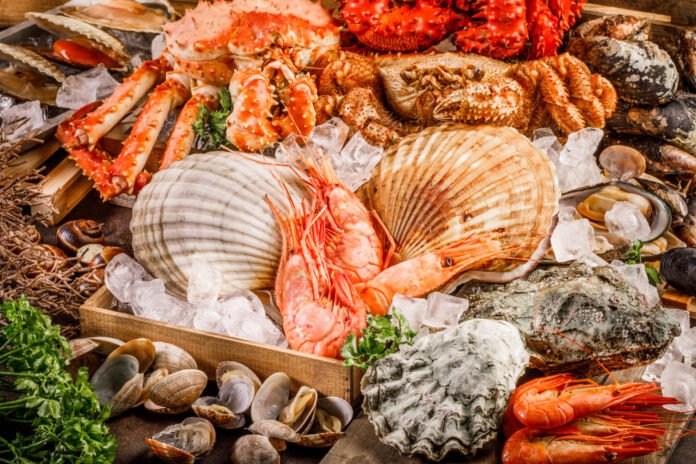Seafood side-effects: Monsoon season brings relief from the scorching heat and rejuvenates the environment. However, it also brings along its fair share of challenges, especially when it comes to food choices. Seafood, which is a popular delicacy for many, raises concerns during this rainy season. In this article, we will explore the potential side effects of consuming fish and other seafood during the monsoon season.
Read this also: Indulge in the flavors of Lahore with this ‘Lahori Kadhai Chicken’
Know the side-effects of consuming sea-food during monsoon

1. Spoilage and Contamination: The monsoon season creates a favorable environment for the growth of bacteria and other pathogens. Seafood, being highly perishable, is prone to spoilage and contamination. Improper handling and storage can lead to the growth of harmful bacteria such as Salmonella and Vibrio, causing foodborne illnesses like gastroenteritis. Consuming contaminated seafood can result in symptoms like nausea, vomiting, diarrhea, and stomach cramps.
2. Heavy Metal Accumulation: Seafood, especially fish, can accumulate heavy metals like mercury, lead, and cadmium. These metals can enter the water bodies through industrial waste and pollution. During the monsoon season, heavy rainfall can wash these pollutants into rivers and oceans, increasing the risk of contamination in seafood. Prolonged exposure to heavy metals can lead to various health issues, including neurological disorders, kidney damage, and impaired fetal development.
3. Allergies and Asthma: Seafood allergies are quite common, with symptoms ranging from mild to severe. During the monsoon season, the humidity in the air can trigger allergic reactions in susceptible individuals. Asthma patients may experience worsened symptoms due to the increased moisture content in the air. It is crucial for people with known allergies or respiratory conditions to exercise caution while consuming seafood during this time.
4. Parasitic Infections: Certain types of seafood, such as raw or undercooked fish, can harbor parasites like tapeworms and roundworms. These parasites can cause infections in humans if ingested. The risk of parasitic infections may be higher during the monsoon season due to water contamination. Thoroughly cooking seafood can help eliminate these parasites and reduce the risk of infection.
5. Increased Digestive Issues: Monsoon season is often associated with digestive problems due to the high humidity and waterborne diseases. Consuming seafood, which is already heavy on the digestive system, may exacerbate these issues. People with sensitive stomachs or pre-existing digestive disorders should be cautious while consuming seafood during this time.
Considering these potential side effects, it is advisable to exercise caution when consuming seafood during the monsoon season. Here are a few tips to minimize the risks:
1. Choose Fresh and Reliable Sources: Purchase seafood from trustworthy vendors who follow proper hygiene and storage practices.
2. Cook Thoroughly: Ensure that seafood is cooked thoroughly, reaching the recommended internal temperature to kill any harmful bacteria or parasites.
3. Avoid Raw Seafood: Refrain from consuming raw or undercooked seafood, as it poses a higher risk of contamination and parasitic infections.
4. Practice Good Hygiene: Maintain proper hand hygiene and cleanliness while handling and preparing seafood to prevent cross-contamination.
5. Listen to Your Body: If you experience any adverse reactions after consuming seafood, such as allergic symptoms or digestive issues, it is best to consult a healthcare professional.
While seafood can be a nutritious and delicious addition to our diet, it is essential to be mindful of the potential side effects, especially during the monsoon season. By taking necessary precautions and making informed choices, we can continue to enjoy seafood without compromising our health.



